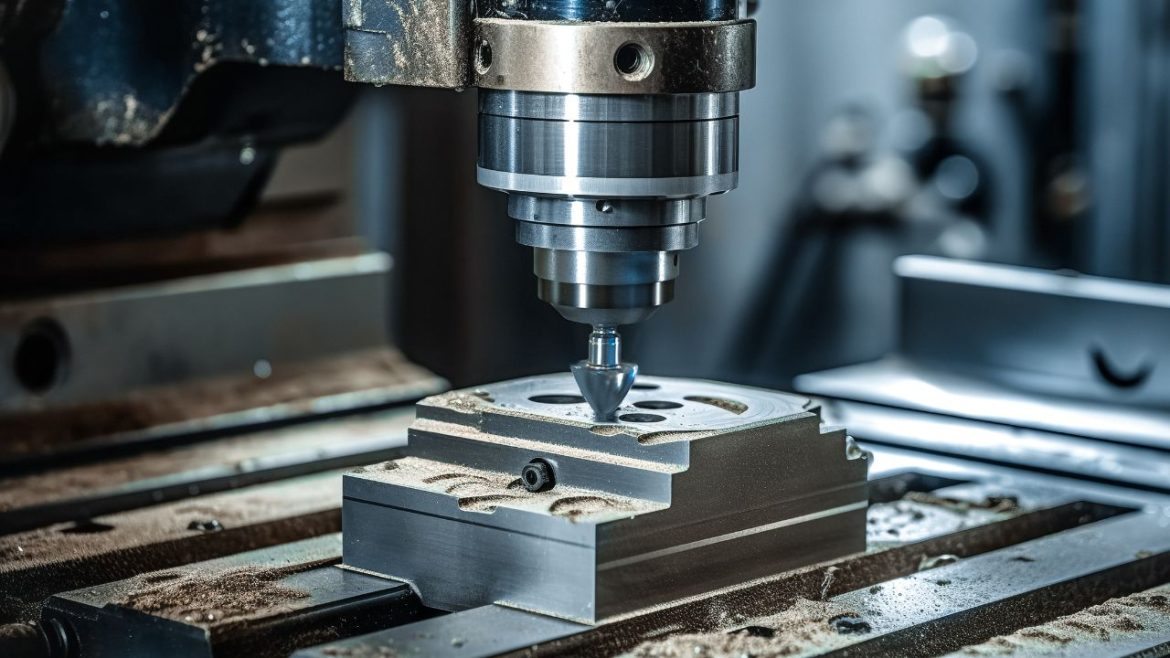The difference between success and failure stands at one fraction of a millimeter within industries that demand precision. The modern manufacturing landscape centers on custom CNC Machining Parts & Solutions as its primary basis, owing to its importance in very demanding industrial sectors. The manufacturing of custom-made objects depends heavily on CNC machining because this process ensures absolute precision in fabricating precise parts. Custom CNC parts are essential for high-stakes domains because of their irreplaceable value.
What Makes CNC Machining Unique?
Through CNC machining, a computer system operates to make precise material cuts from solid blocks for constructing complex shapes. CNC machines operate by digital blueprints, which guarantees that all cuts and drillings and carvings match the original design specifications.
This blend of automation and precision allows industries to tackle intricate projects that would be impossible with conventional tools.
The High-Stakes Demand for Customization
High-precision fields rarely have room for “close enough.” Off-the-shelf parts often fall short because they aren’t designed for specific applications. Custom CNC machining fills this gap by creating components tailored to exact requirements. Whether it’s a jet engine part that must withstand extreme heat or a surgical tool that interacts with human tissue, customization ensures every detail aligns with real-world needs.
Key Benefits of Custom CNC Machining
1. Precision Meets Perfection
High-precision industries rely on tolerances as tight as a few microns. CNC machines achieve this by eliminating human error. For example, aerospace components like turbine blades require flawless surfaces and exact dimensions to function safely. Custom CNC machining delivers this consistency, ensuring parts fit perfectly and perform reliably under stress.
2. Material Versatility
Different applications demand different materials. The selection of titanium inserts for medical implants serves as a requirement, while automotive parts profit from aluminum materials for their lightweight nature. A CNC machine system works with multiple materials, including metals, plastics, ceramics, and composites, to handle specific manufacturing requirements. A CNC machine provides adjustable performance standards that enable parts to function adequately in any corrosive chemical exposure or high-pressure condition.
3. Scalability Without Sacrifice
Custom doesn’t mean “one-off.” With CNC machining operators can make prototypes as well as manufacture items in large quantities. After design programming, the system produces endless exact copies of one design without errors. This scalability is vital for industries like electronics, where a single design might be used in millions of devices.
4. Faster Turnarounds, Fewer Errors
Traditional manufacturing often involves multiple tools and setups, increasing the risk of mistakes. CNC machines streamline production by handling complex tasks in a single operation. This efficiency reduces lead times and minimizes waste—critical factors in industries like defense or automotive manufacturing, where delays can be costly.
Where Custom CNC Parts Shine?
Aerospace: Trusting the Unseen
Aircraft and spacecraft components face extreme conditions. A custom-machined bracket or valve must endure vibration, temperature swings, and pressure changes without failing. CNC machining ensures these parts meet rigorous safety standards, often exceeding industry certifications.
Medical Devices: Precision Saves Lives
Surgical tools, implants, and diagnostic equipment demand absolute accuracy. A hip replacement implant, for instance, must align perfectly with a patient’s anatomy to avoid complications. CNC machining achieves this while adhering to strict hygiene and material standards.
Automotive: Performance Driven
High-performance vehicles rely on custom parts to enhance speed, efficiency, and safety. CNC-machined engine components, like pistons or cylinder heads, optimize fuel combustion and reduce wear, directly impacting a car’s reliability and power.
Electronics: Small Parts, Big Impact
Modern electronics pack immense functionality into tiny spaces. Custom CNC parts, such as heat sinks or connector housings, ensure devices stay cool and components fit snugly. This precision prevents malfunctions in everything from smartphones to satellites.
Challenges to Consider
While CNC machining offers unparalleled advantages, it’s not without hurdles. Custom tooling and programming require an upfront investment, making small batches costlier. Skilled operators are also essential to troubleshoot issues and optimize designs. However, these challenges are often outweighed by the long-term benefits of quality and reliability.
The Future of Precision Manufacturing
Industrial advancement prompts the simultaneous evolution of CNC machining technology. Multi-axis machines that use AI-quality check systems speed up production and reduce costs for customized parts. New manufacturing opportunities emerge through the combination of CNC techniques with 3D printing for creating complex geometrical designs.
Final Thoughts
No compromises can be accepted within precise manufacturing operations. CNC custom machining transforms conceptual designs into functional parts that fulfill stringent accuracy and durability requirements. Industrial adoption of this technology helps organizations speed up innovation while reducing risks and retaining their position as market leaders. Custom CNC parts are the invisible elements that enable successful rocket launches and medical treatments because they demonstrate that precision works as the essential fundament of advancement.
